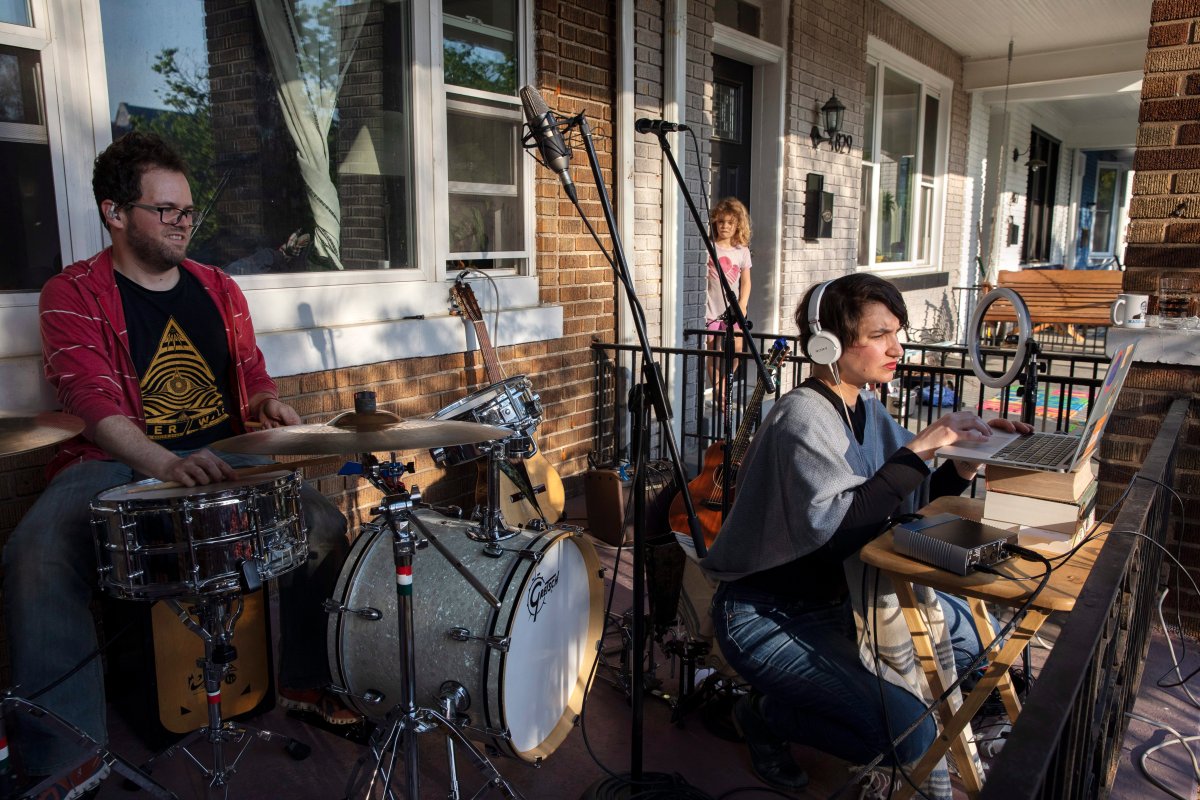WARNING: This story contains a lot more questions than answers.

The list of festival cancellations is kilometres long: SXSW, Glastonbury, Roskilde, Rock am Ring, Wacken, Osheaga, Winnipeg Folk Festival, Festival d’été de Québec, the Great Escape and dozens more.
The organizers of Coachella and Bonnaroo are trying to be optimistic, postponing things until the fall. Pearl Jam, the Foo Fighters, the Killers, and thousands of other acts are in limbo when it comes to touring.
Worldwide, music venues of all sizes are closed until further notice.
Just this year alone, the concert industry is expected to lose US$9 billion. No wonder Live Nation, the world’s biggest promoter, has embarked on US$500 million worth of cost-cutting. CEO Michael Rapino is even foregoing his US$3 million salary.
Lest you think that we’re just talking about rock, pop, and country, the Toronto Symphony Orchestra has cancelled the remainder of its 2019-20 season, while the TD Vancouver International Jazz festival has been nixed for this year.
It’s bad in the UK, too. The creative industries contribute £111.7 billion ($196.5 billion) to the British economy.
Fans are annoyed. Ticketmaster and other ticketsellers aren’t rushing to fill refund requests for a variety of reasons.
And then there are the musicians. Artist guarantees have evaporated. And while the big stars can probably afford to wait it out, everyday working musicians who depend on playing live to survive are growing very, very desperate.
Everyone wishes things could get back to normal. That, however, may be some time in the future.
While some foresee a return to live events by the fall, others aren’t so optimistic. Consider the logistics of international touring. How many acts want to deal with two weeks’ worth of quarantine into a foreign country and another two weeks on the way out?

And while U.S. President Donald Trump wants sports back in the fall with no crowds and quarantined players, that doesn’t really work for concerts, does it?
Meanwhile, the mayors of both New York and Los Angeles believe that concerts won’t even return until sometime in 2021. Another health care professional feels the same way about festivals, saying that 2022 may be more realistic.
Festivals and Events Ontario conducted a survey of 396 festival and event organizers across the province. As of April 17, 99 of 396 festivals in the survey say they have either postponed (not cancelled) their event while another 53 have converted things to an online digital event.
There’s the psychological aspect to this. How long will it take you to believe that you won’t get infected by a large crowd? Now that we’re in the habit of physical distancing, will we want to give up our safe spacing?
At best, the return to a “normal” live music scene will be (and should be) incremental, maybe starting with tiny gigs which gradually expand back up to arenas and festivals. How and when that happens is up to governments and those dealing with public health.
And no artist wants to jump back in too early lest one of their gigs ends up being an epicentre of infection — or re-infection.
To say that the touring industry is freaking out is to put it mildly.
Last week, there was this panel by music industry experts which tackled the subject of the future of live music. Will we see a rise in Zoom-style performances? Do holograms figure in somewhere? Is this the tipping point for virtual reality when applied to music? And how will money flow from the fan to the artists?
Scott Cohen, the chief innovation officer for recorded music, wondered if the touring industry isn’t headed for its own “Napster moment.”
“With this COVID-19 disruption, is this doing to the live industry what the Napster disruption did to the recorded music industry?” Cohen told the panel.
“The recorded music industry was going along just fine and then outside forces — as in illegal downloading — happened, and it was like, how are we going to adapt to this new environment? What do we need to do?
Artists are doing their best with intimate online performances — and some are extremely good and very entertaining. Faced with an adapt or die situation, artists are finding new ways to exploit technology and creating brand new digital identities.
Early indications are that fans are adapting, too — at least a little bit.

Still, sitting in front of a screen is a weak substitute for the full-on concert experience. Nothing beats people enjoying the presence of each other in a musical environment.
Who or what might be the saviour of the live music industry? An artist? A presently unknown coder? A brilliant tech entrepreneur? Or is the only realistic route is to hang on with quiet desperation?
The truth is no one knows. We’ll see, I guess.
There is one thing that is guaranteed: Artists will not only continue to create art but also find ways to use technology to communicate what they do with other humans.
Alan Cross is a broadcaster with Q107 and 102.1 the Edge and a commentator for Global News.
Subscribe to Alan’s Ongoing History of New Music Podcast now on Apple Podcast or Google Play






Comments